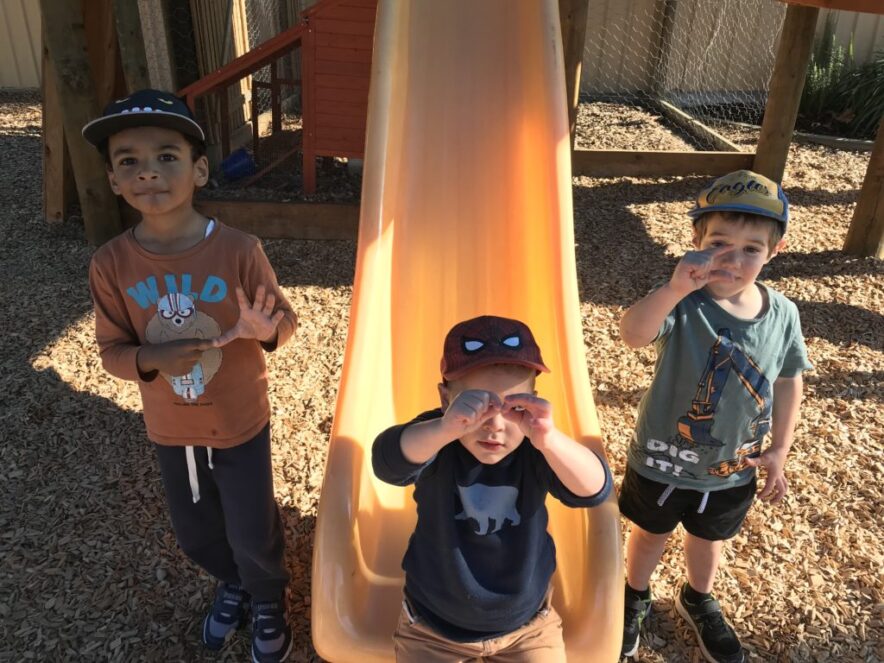Thornlie Early Learning introduces Auslan to three to five year olds

Auslan, the official sign language of Australia, was recently introduced to children in the Bunuru room, which caters to children from three to five years of age, at MercyCare Thornlie Early Learning Centre.
Using the children’s physicality to support memory retention skills and cognitive development, which in turn stimulates brain development, has supported the children to consolidate their language learning.
“It’s important for me to give children the opportunity to learn a second language and I find Auslan allows us to be fully inclusive of all people,” said Educator Amber Mizen.
“It can be used in many different settings and allows us to gain a better understanding of language. It also teaches children about how we can all be different and have different abilities,” she added.
“I would like to hope that we are breaking down barriers for people with a significant disadvantage,” Ms Mizen continued.
With one in six people in Australia having some degree of hearing loss, and with people living with significant hearing loss often struggling with communication, teaching a language which is inclusive was an important consideration.
“We hope that the children we are teaching today will remember this and take this into their adult life as a valuable lesson of inclusion. Learning Auslan, I feel, has taught us all a little more compassion and respect,” Ms Mizen said.
The children have started with the basics – learning numbers 1-20 and the alphabet before moving to basic words and phrases, like thank you, and then colours and animals.
“The children particularly like the letter B, as I first taught them it’s like putting their sunglasses on so they were able to gauge what shape their hands and fingers had to be in. Now I see lots of our younger children start the letter by putting their glasses on so to speak. My own personal favourite sign is for chocolate cake – but it is not something we have taught the children just yet!” she added.
Many of the families have mentioned that children are coming home and sharing what they have learnt.
“I think it’s incredibly important in an early learning setting where we have many children who have come through our service that are non-verbal, or even just still learning English. It allows them the chance to speak up, to learn at the same pace as everyone else and hopefully begins to close that potential gap between verbal and non-verbal children,” Ms Mizen said in closing.
Popular

Workforce
Quality
Research
When did it start to go wrong?
2025-12-18 08:00:46
by Fiona Alston

Quality
Practice
Research
Curiouser and Curiouser: What Alice helps us see about who should teach
2025-12-19 07:15:35
by Contributed Content

Economics
Policy
Quality
Provider
Research
Is your service ready? Key updates to Queensland kindergarten funding in 2026
2025-12-17 07:00:15
by Fiona Alston















